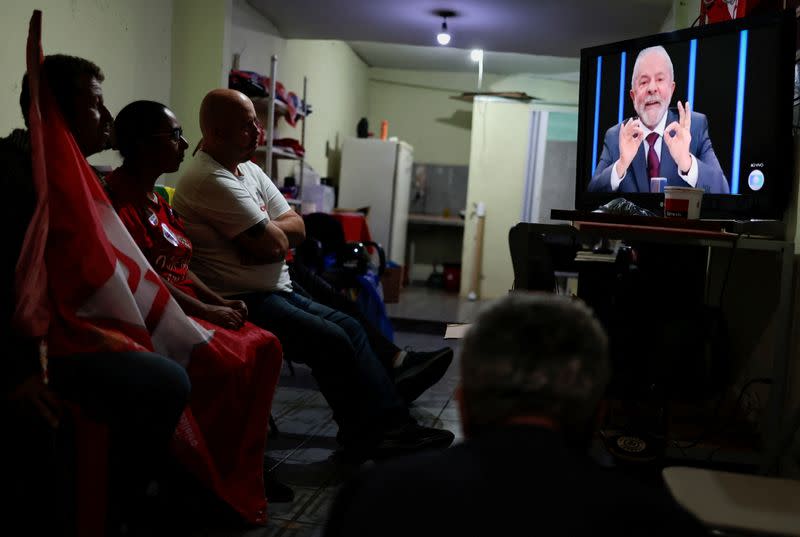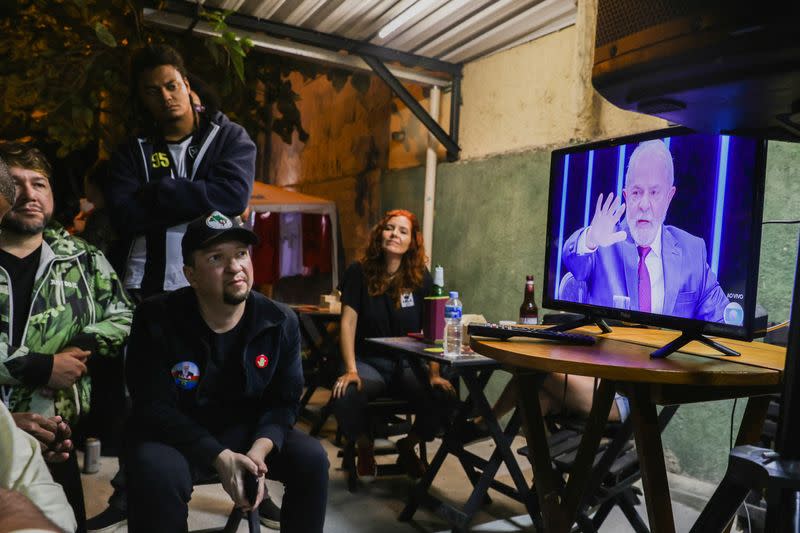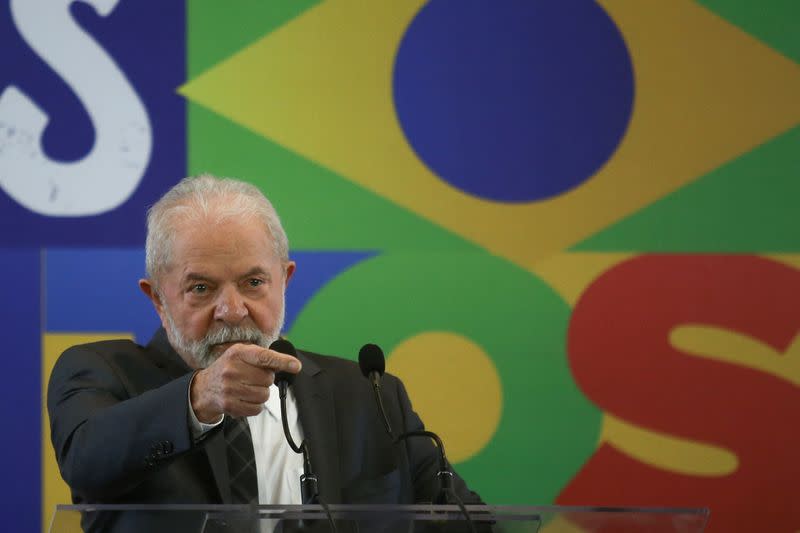Brazil's Lula vows to punish corruption if elected in October
- Oops!Something went wrong.Please try again later.
- Oops!Something went wrong.Please try again later.
- Oops!Something went wrong.Please try again later.
BRASILIA (Reuters) -Former leftist President Luiz Inacio Lula da Silva, who spent 19 months in prison on bribery convictions, promised on Thursday to crack down on corruption if elected in Brazil's October election.
Lula said he would create new mechanisms to investigate anyone in his government accused of corruption and punish them if proven guilty.
"Whoever makes a mistake will pay, you can be sure of that," he said in an interview with TV Globo's Jornal Nacional, a newscast with the largest audience in Brazil.
Lula, who led Brazil from 2003 to 2010, was jailed in the country's biggest corruption investigation that put dozens of politicians and businessmen in prison for graft and bribes. His convictions were later annulled allowing him to run again for office.
"I want to return to do things better this time," he said, admitting mistakes by his handpicked Workers Party successor Dilma Rousseff, who was impeached in the midst of a recession.
Lula has a double-digit lead in opinion polls over his far-right rival, President Jair Bolsonaro, in Brazil's most polarized race in decades.
He vowed to create jobs and restore solid growth in Latin America's largest economy if he wins, and pledged to govern with "credibility, predictability and stability."
Lula said Brazil's powerhouse farm sector had done well during his two terms as president, when Brazil enjoyed a commodity boom. Bolsonaro, who is backed by the farm lobby, has eased environmental rules and frozen indigenous land claims.
If some farmers were against him, Lula said, it is because he opposes the destruction of the forest, but "serious" agricultural exporters were against illegal deforestation.
"What we need is to correctly tap our biodiversity and generate employment in the Amazon," he said.
(Reporting by Anthony Boadle; Editing by Richard Pullin)



